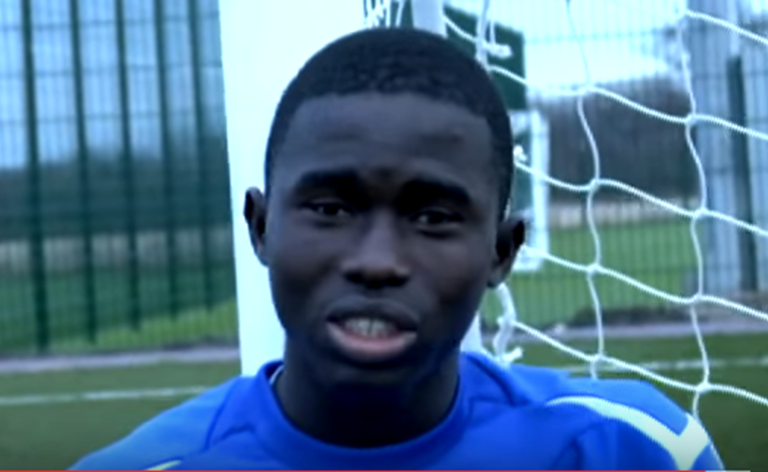At the start of the 1994/95 season, Everton were in desperate need of a high-quality striker. They sold Tony Cottee to West Ham and needed someone to replace him and accompany budding 21-year-old striker Daniel Amokachi. They tried to sign Corinthians’ Viola and Porto’s Emil Kostadinov, but to no avail. So they focused on Sao Paulo’s Müller.
Stories
The Goalkeeper Who Scored A Hat-Trick
When you think of an Everton goalkeeper who scored a goal, the first name that comes to your head would obviously be Tim Howard. However, there was a goalkeeper who went to two better and scored a hat-trick – Jack Whitley.
The Fog-Fiend
Everton have won the top-flight title 9 times. However, they could easily have had another one under their belt. Bad judgement, bad weather and bad luck ended up costing Everton dearly.
Who Wants To Be A Millonario?
Nowadays, footballers leaving clubs for big money is commonplace. However, it was a novelty in the turn of the 1950s. A few Everton players were linked with a move to Colombian team Millonarios, who had future Real Madrid star Alfredo di Stefano scoring goals left, right and centre for them. Most refused, one was on the fence, and the other moved and regretted it.
The Split – What Really Happened
It is commonly known that Liverpool were born after a dispute over rising rent led Everton to split into two. However, there was much more to it. Why Liverpool’s birth happened may have been because of the dispute, but how Liverpool’s birth happened is a different story.
A Game of Two Halves
The title of the post is a cliche in football. But in this case, it is a literal truth.
On November 12th, 1904, Everton were playing reigning champions Sheffield Wednesday. They were on the back of a 5-1 win over Nottingham Forest and 4 wins in 5 games, so morale was high at the club. Everton took the lead after a couple of minutes thanks to a goal from Sandy Young. Sheffield Wednesday equalised after 10 minutes after a goal from Harry Davis. Everton then scored 4 goals in 19 minutes after a brace from Jimmy Settle and goals from Harold Hardman and Walter Abbott. At half-time, Everton were leading 5-1 and 2 points were surely in the bag. Or so it seemed.
Everton and Racism
Nowadays, you wouldn’t consider Everton a racist club. You wouldn’t give it a single thought. However, once upon a time, they had a bad reputation. Fans made racist chants more often than not, and that is no secret.
Abe Donzo – The Refugee Prodigy

Abe Donzo (also known as John Abraham Kamara) was born on September 3rd, 1993 on the Guinean-Liberian border. He had a large family – 15 siblings due to having a trigamous father. He had a difficult start to life, spending almost his entire childhood in poverty.
Everton Versus The FA
For any footballer, representing your country is a huge honour. But from a club’s perspective, they are wary of their players’ selections, nowadays because of injuries. But in the past, internationals often coincided with club games.
The 1893 Liverpool Senior Cup Final
On April 22nd, 1893, Everton and Liverpool met each other for the first time since the split the previous year. It is disputed that this was the first ever Merseyside Derby. However, Everton’s reserve team (a.k.a. Everton Combination) participated in the tournament, not the first team; so technically, this wasn’t the first ever Merseyside Derby. But that didn’t mean the game was a friendly affair. The Everton-Liverpool rivalry started with a bang.